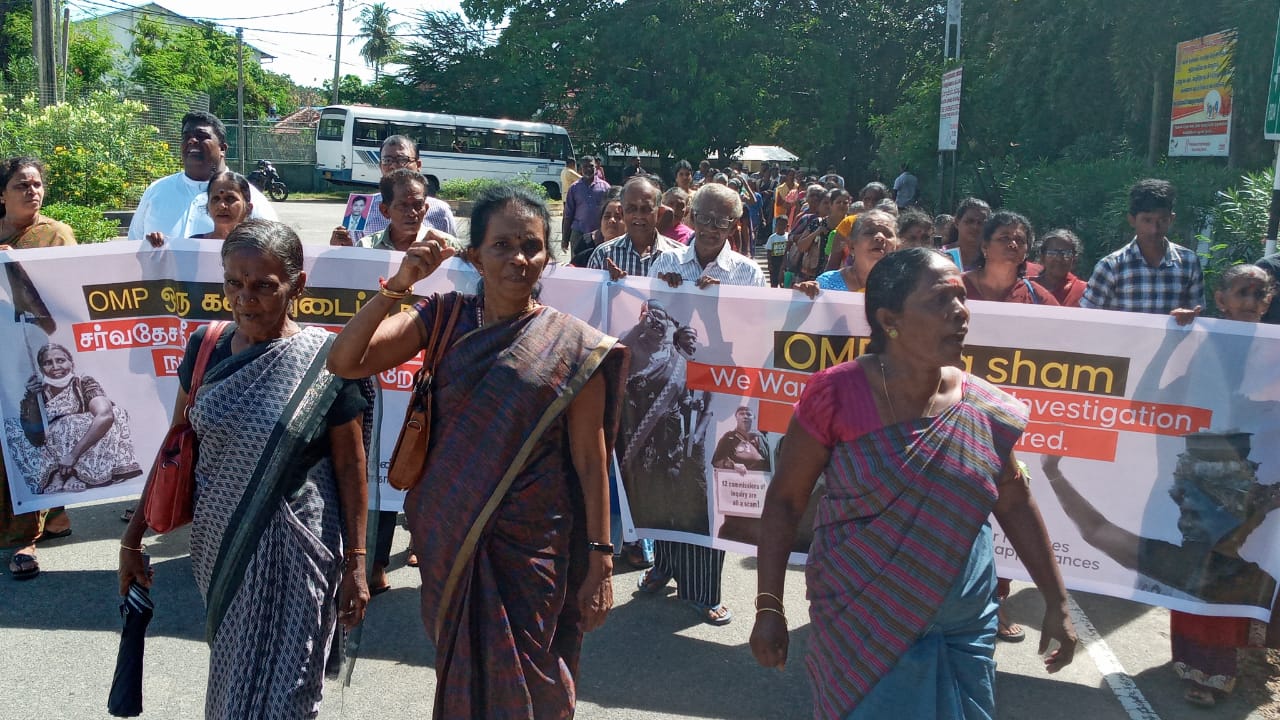
The Sri Lankan state continued to target the Tamil families of the disappeared last week, as police issued another summons to Thambirasa Selvarani, the head of the Association for Enforced Disappearances (AERD) in Amparai.
Selvarani has been at the forefront of efforts to locate victims of enforced disappearances, and this is not the first time she has faced such intimidation. Sri Lankan authorities, particularly intelligence services and police, have routinely harassed and intimidated members of organizations like AERD, along with their families. The apparent aim is to stifle their voices and discourage them from continuing their campaign for justice regarding the missing.
Thambirasa Selvarani, head of #AERD in Amparai, who is among those in the forefront seeking to find the victims of #EnforcedDisappearances, was summoned by the police on allegations of attempts to reinvigorate the now military defeated #Tamil Tigers.
— LankaFiles (@lankafiles) October 11, 2024
https://t.co/yW5WFEvk9G
International organisations such as uman Rights Watch (HRW) have highlighted the Sri Lankan government’s persistent persecution of Tamil families of the disappeared. The organization noted the state's ongoing efforts to suppress the voices of those demanding truth and justice. HRW remarked that through harassment, the government "resists any progress to address the terrible legacy of enforced disappearances, and instead compounds the anguish of victims' families."
This persecution extends to blocking peaceful demonstrations. On the International Day of the Disappeared earlier this year, Tamil families across the Tamil homeland organized protests to mark the occasion. In response, police in Trincomalee secured a court order to prevent these peaceful demonstrations, citing potential ethnic tensions, public disturbance, and threats to national security.
"The relatives of the disappeared experience the daily torment of not knowing what happened to their family members," said Meenakshi Ganguly, Deputy Asia Director at HRW. "State agencies have cruelly compounded this suffering by trying to silence them. Hundreds of mothers, wives, and others have passed away without ever learning the fate of their loved ones, and many more fear they might not live to see justice served."
For individuals like Selvarani, this harassment is part of a broader strategy by the Sri Lankan state to suppress calls for justice.
Tens of thousands of Tamils were killed or disappeared by the Sri Lankan state. Despite several years of protesting and demands for justice, the state has refused to answer questions on the whereabouts of their loved ones or co-operate with any international accountability mechanisms.

